Remote work visas let you live and work legally abroad without needing a local job. As of 2024, 29 countries offer these programs, each with unique benefits. Here’s a quick breakdown:
- Spain: €2,870/month income, 1-year visa, EU access, tax perks.
- Portugal: Flexible income, family-friendly, EU residency path.
- Croatia: $2,500/month income, affordable, growing tech hub.
- Grenada: $3,083/year income, Caribbean lifestyle, tax perks.
- St. Lucia: $37,000/year income, island living, tech-friendly.
- UAE: $3,500/month income, zero income tax, modern infrastructure.
- Cabo Verde: €1,500 bank balance, low-cost, vibrant culture.
Quick Comparison Table:
| Country | Monthly Income | Visa Duration | Application Fee | Key Features |
|---|---|---|---|---|
| Spain | €2,870 | 1 year | €75 | EU access, tax benefits |
| Portugal | Flexible | 1 year | €300 | Family-friendly, EU path |
| Croatia | $2,500 | 1 year | €150 | Affordable, tech community |
| Grenada | $3,083 | 1 year | $1,500 | Caribbean lifestyle |
| St. Lucia | $3,083 | 1 year | $1,500 | Island living, tax-friendly |
| UAE | $3,500 | 1 year | $287 | Zero tax, modern facilities |
| Cabo Verde | €1,500 bank | 6 months | €20 | Low-cost, cultural mix |
These visas offer Full Stack Developers the chance to work globally, explore new cultures, and connect with international tech communities. Choose the one that fits your career and lifestyle goals best!
5 Easiest Countries to Get a Digital Nomad Visa in 2024
Key Points About Remote Work Visas
Digital nomad visas let remote professionals, including developers, legally live and work abroad. Unlike traditional work visas, these permits don’t require you to have a local job or business license [3]. This makes them a great option for Full Stack Developers working with clients across the globe.
Common Requirements
Most countries have specific criteria, such as:
| Requirement | Typical Range | Examples |
|---|---|---|
| Monthly Income | $2,500 – $3,500 | Croatia: $2,500 [4] Abu Dhabi: $3,500 [2] |
| Health Insurance | International coverage | Valid global policy |
| Background Check | Clean record | Criminal history verification |
| Application Fee | $80 – $1,500 | Portugal: $80 [1] Grenada: $1,500 [1] |
Benefits for Developers
These visas often allow stays of up to a year, with the option to renew. For Full Stack Developers, they provide the freedom to work with global clients while immersing in new environments. For example, Spain offers a one-year residency and tax advantages [1].
Taxes and Infrastructure
Spain’s tax incentives for remote workers show how countries are competing to attract tech talent. When choosing a destination, developers should also consider:
- Internet speed and reliability
- Time zone compatibility with clients
- Local tech communities
- Cost of living
- Healthcare quality
With 29 countries now offering digital nomad visas, interest in these programs is growing [1]. Proper planning and understanding of local regulations can make your move stress-free.
Next, let’s dive into specific countries offering digital nomad visas that suit Full Stack Developers.
1. Spain – Digital Nomad Visa
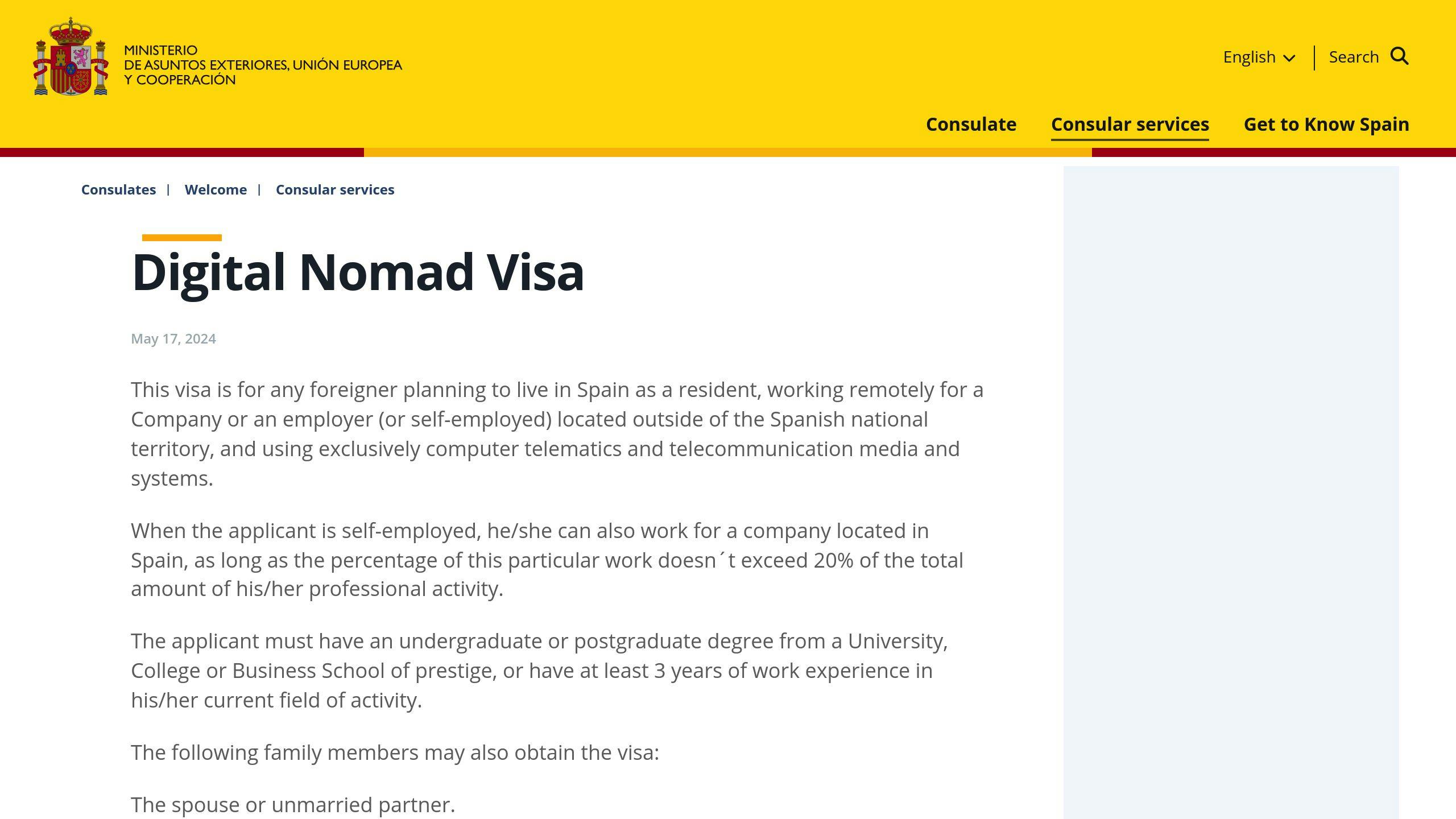
Spain’s Digital Nomad Visa, introduced through the Startup Act, allows Full Stack Developers to live and work remotely in Spain while continuing to serve international clients.
Key Requirements and Duration
Applicants must meet several criteria, including proof of remote work with non-Spanish companies, a stable monthly income of at least €2,334 (around $2,500 USD) plus an additional €467 per dependent, valid health insurance, a clean criminal record, and a valid passport [1]. The visa is initially issued for 12 months and can be extended for up to three years.
Perks for Developers
Spain provides several benefits for tech professionals:
- Lower tax rates for remote workers under the Startup Act [1].
- Visa holders can travel freely within the Schengen Zone.
- Eligibility to apply for permanent residency after three years [1].
Tech Ecosystem and Connectivity
Spain is home to a growing tech scene and offers excellent resources for remote work. With reliable high-speed internet and co-working spaces in cities like Madrid and Barcelona, developers have access to a supportive infrastructure. The country’s Central European Time (CET) zone also makes it easier to collaborate with both European and American clients.
For Full Stack Developers, submitting accurate documentation is essential to secure the visa [3]. While Spain’s program is highly regarded, countries like Portugal also provide attractive options for remote workers.
2. Portugal – D7 Visa
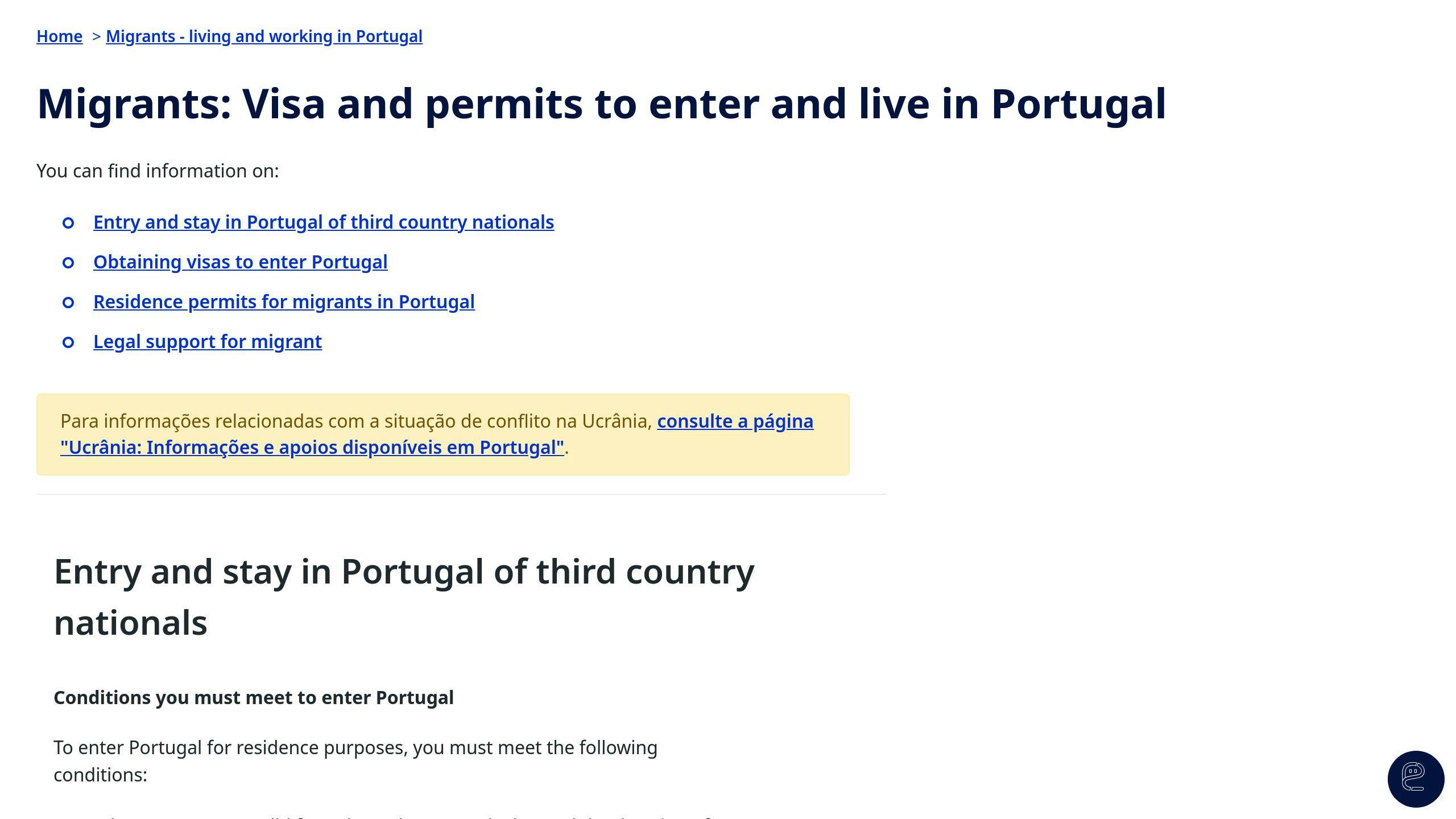
Portugal stands out as a top choice for developers looking for a base in Europe, thanks to its affordable living costs, tech-friendly environment, and excellent quality of life. The D7 Visa allows Full Stack Developers to work remotely while enjoying Portugal’s growing tech scene and laid-back lifestyle.
Income Requirements and Financial Stability
The D7 Visa is flexible, accommodating developers with income from remote work, freelancing, or self-employment. While the official minimum income requirement matches Portugal’s minimum wage (€760), aiming for a monthly income of €2,500-€3,000 can ensure a more comfortable lifestyle and improve your chances of approval [1].
Visa Duration and Process
The process starts with a 4-month entry visa, which transitions into a 1-year residence permit. This permit can be renewed in 2-year increments. After living in Portugal for 5 years, you may become eligible for permanent residency [2].
Key Application Requirements
To apply, you’ll need:
- A valid passport
- Proof of income
- Health insurance
- A clean criminal record
- Proof of accommodation [1]
Tech Infrastructure and Perks
Portugal boasts reliable internet, thriving tech hubs in Lisbon and Porto, and a welcoming startup community. Newcomers can benefit from tax incentives, and the country’s time zone makes it easy to collaborate with teams worldwide [1][2].
Family-Friendly Features
The D7 Visa also allows for family reunification, enabling dependents to join as long as they meet similar health insurance and financial criteria [2].
Portugal’s mix of affordability and tech opportunities makes it a great option, though countries like Croatia also offer enticing remote work visa programs.
3. Croatia – Digital Nomad Visa
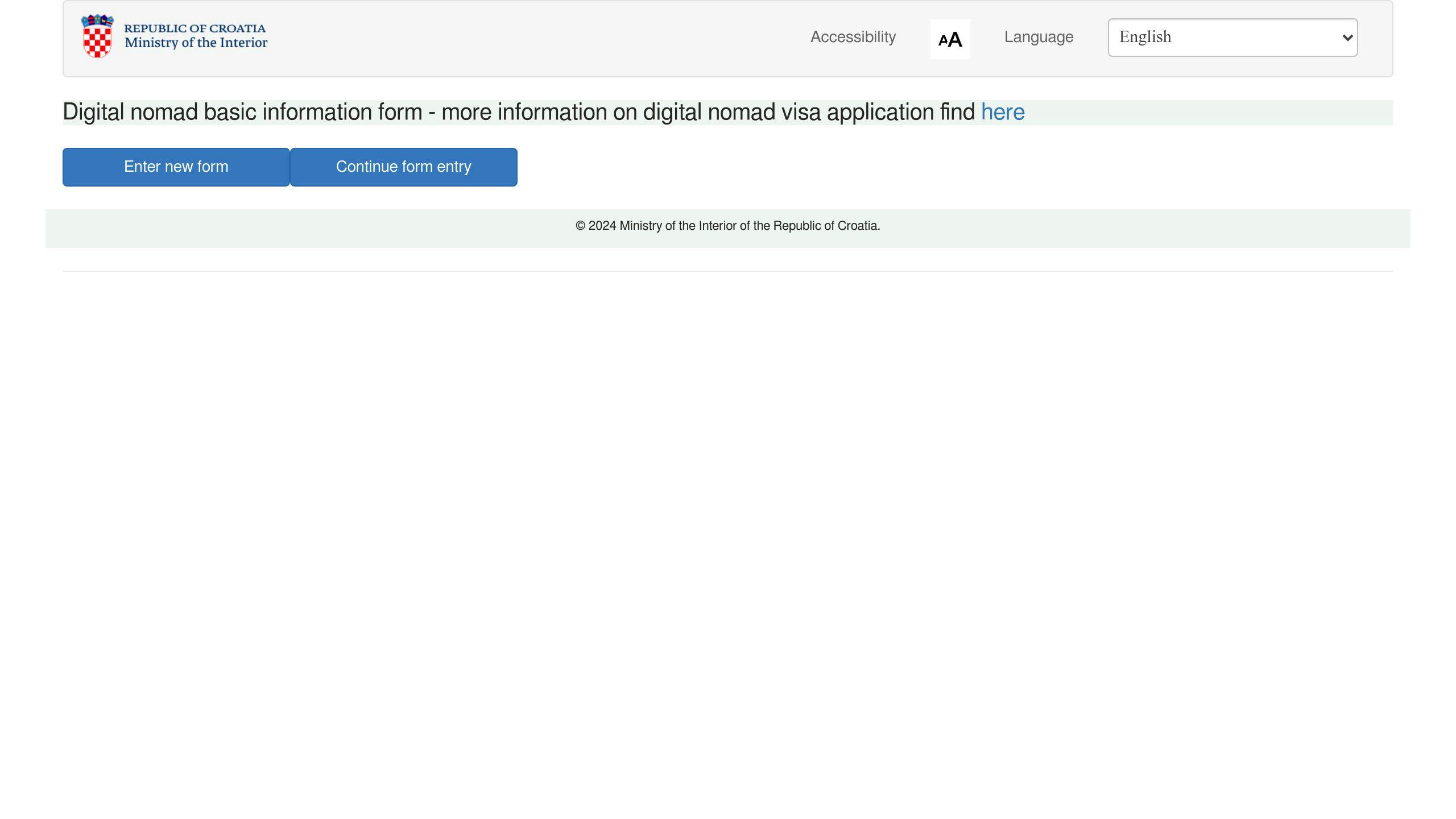
Launched in 2021, Croatia’s Digital Nomad Visa allows remote workers to live and work in the country for up to 12 months. This program is a great way to enjoy Croatia’s Mediterranean lifestyle while taking advantage of its growing tech scene [4].
Financial Requirements
To be eligible, applicants need to show a monthly income of at least $2,500 from sources outside Croatia. This ensures financial stability during their stay [4].
How to Apply
The application process involves submitting proof of remote work, income, health insurance, a clean criminal record, and accommodation arrangements. All documents must be translated and notarized to meet Croatian requirements [4].
Why Croatia Stands Out
Croatia combines modern conveniences with Mediterranean charm. Here’s what makes it appealing:
| Feature | Highlights |
|---|---|
| Work Setup | Access to coworking spaces and reliable internet |
| Affordability | Lower cost of living compared to Western Europe |
| Location | Central spot for collaborating with European teams |
| Community | A growing network of expats and tech professionals |
Ideal for Full Stack Developers
Croatia offers a tech-friendly environment and reliable digital infrastructure, making it a great choice for Full Stack Developers. The affordable lifestyle, scenic surroundings, and convenient time zone (UTC+1) make it easy to work with clients in Europe and North America. Plus, the expanding expat and tech community provides plenty of chances to network and share skills [4].
While Croatia is an attractive option, other locations like Grenada might also offer unique advantages for remote workers.
4. Grenada – Remote Work Visa
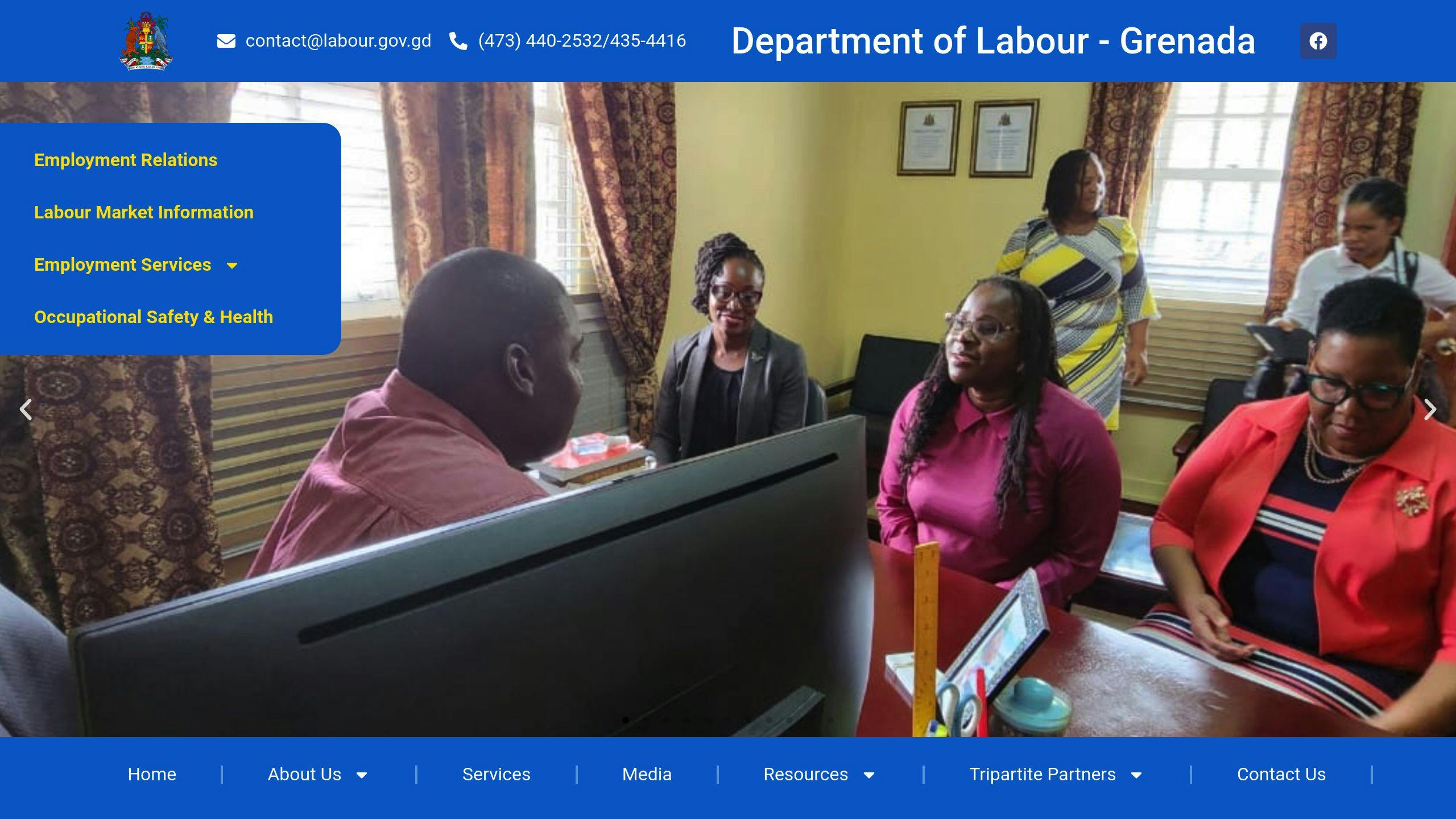
Grenada’s Remote Work Visa program provides Full Stack Developers a chance to work remotely while soaking up the Caribbean lifestyle. If you’re looking for a mix of career flexibility and island living, this program might just be the perfect fit [1].
Financial Requirements and Fees
Here’s a breakdown of the program’s financial details:
| Requirement Type | Details |
|---|---|
| Annual Income | EC$100,000 (≈ $37,000 USD) |
| Individual Application | $1,500 |
| Family Application | $2,000 (up to 4 members) |
| Additional Dependents | $200 per person |
Application Process
To apply for Grenada’s Remote Work Visa, you’ll need:
- A valid passport
- Proof of steady remote income
- Health insurance covering your stay
- COVID-19 vaccination records [1]
Living and Working Environment
Grenada offers a mix of professional convenience and tropical relaxation. Here’s what you can expect:
| Aspect | Highlights |
|---|---|
| Work-Life Balance | A growing expat community, flexible hours, and a warm climate |
| Cost of Living | More affordable compared to major tech cities |
| Lifestyle | Stunning beaches, vibrant culture, and family-friendly visa options |
Infrastructure Considerations
While Grenada is a great place to live and work, internet reliability can vary depending on your location. Be sure to research thoroughly to ensure you’ll have the stable connection required for development work [1].
Grenada’s easy application process, reasonable income requirements, and beautiful setting make it a standout option. However, if you’re exploring alternatives, nearby destinations like St. Lucia also offer remote work programs with their own perks.
sbb-itb-f454395
5. St. Lucia – Live It Program
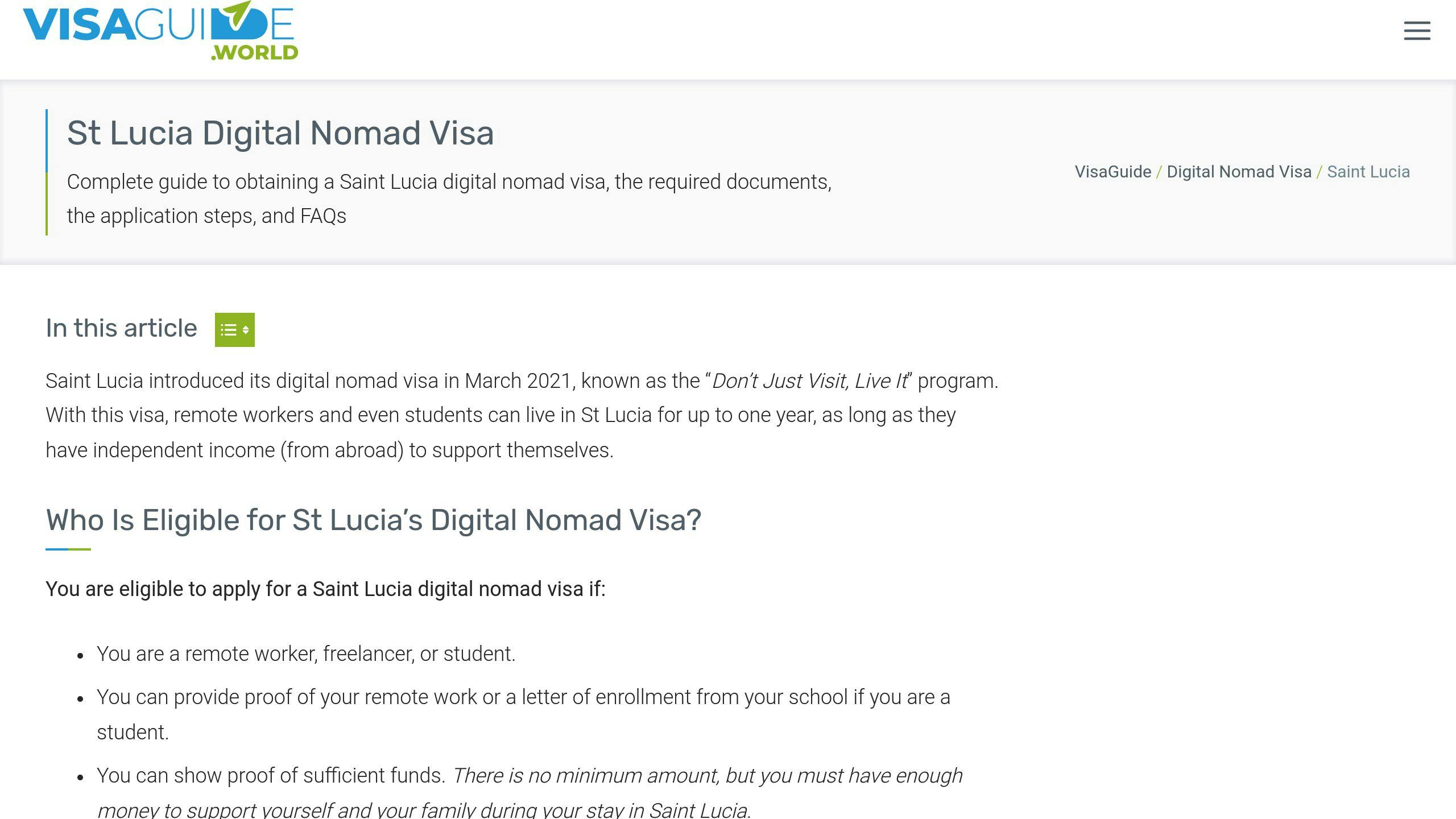
St. Lucia’s Live It Program invites Full Stack Developers to work remotely while enjoying the island’s rich cultural backdrop. With straightforward requirements and solid support for remote professionals, it’s an attractive option for those looking to combine work with a change of scenery.
Program Requirements and Application
To qualify, applicants need an annual income of at least EC$100,000 (around $37,000 USD) and must pay application fees starting at $1,500. The visa is valid for 12 months and can be renewed. The application process is simple, including an online form and requirements similar to other Caribbean programs, such as Grenada’s.
Infrastructure and Work Environment
St. Lucia is well-equipped for remote work, offering dependable internet and coworking spaces. Here’s a quick overview of what you can expect:
| Feature | Details |
|---|---|
| Internet Connectivity | Fast and reliable internet access |
| Coworking Spaces | Modern facilities across the island |
| Digital Community | A growing network of tech professionals |
| Work Resources | Access to local amenities and business services |
These features make it easy for developers to handle projects, collaborate with global teams, and meet deadlines without interruption.
Living Experience
Beyond work, St. Lucia offers a chance to dive into its lively culture, from music and food to stunning natural landmarks. The program also allows for a longer stay, as participants can renew their visa for another 12 months by applying before the current visa expires.
St. Lucia blends excellent work infrastructure with an engaging cultural experience. However, for developers looking for a completely different setting, destinations like the UAE also provide appealing alternatives.
6. United Arab Emirates – Virtual Working Program
The UAE’s Virtual Working Program allows remote professionals to live and work in the UAE while staying employed by companies based abroad. It combines cutting-edge infrastructure with an immersive Middle Eastern lifestyle.
Program Requirements
Applicants need to demonstrate a monthly income of AED 18,000 (around $4,900 USD) from foreign sources. This reflects the UAE’s appeal as a high-end destination for remote workers.
Application Process and Timeline
The application process takes about 2-4 weeks and requires several key documents, including proof of income, a valid passport, health insurance, and a police clearance certificate.
| Document Type | Details |
|---|---|
| Professional Documents | Employment contract or proof of business ownership |
| Personal Documents | Valid passport and health insurance coverage |
| Background Check | Police clearance certificate |
| Financial Proof | Bank statements showing required income |
| Application Fee | USD 287 [2] |
Benefits for Developers
The program offers a range of perks tailored for remote workers:
| Benefit Category | Features |
|---|---|
| Tax Benefits | No income tax policy |
| Family and Healthcare | Access to healthcare and dependent sponsorship |
| Duration | One-year visa, renewable |
| Location Advantage | Convenient time zone for Europe and Asia collaborations |
Work Environment
Dubai and Abu Dhabi are home to thriving tech hubs, modern coworking spaces, and plenty of networking opportunities. These cities provide a perfect mix of global connectivity, urban sophistication, and cultural richness.
While the UAE’s income requirement is on the higher side, the tax-free income policy and world-class facilities make it an attractive choice for remote developers. For those seeking more budget-friendly options, locations like Cabo Verde might be worth considering.
7. Cabo Verde – Remote Working Program
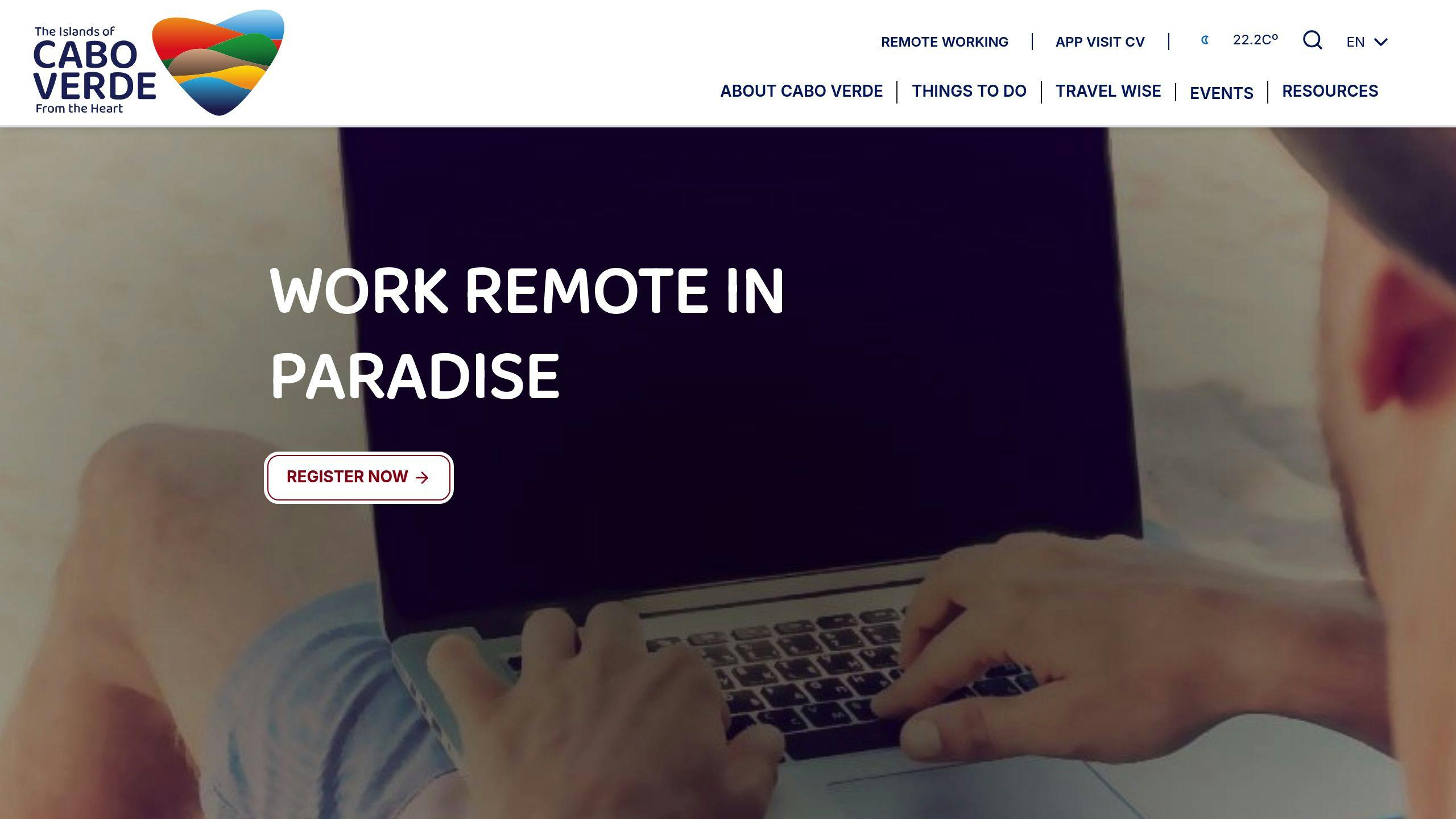
Cabo Verde’s Remote Working Program is an affordable and straightforward option for developers looking to embrace the digital nomad lifestyle. Situated off Africa’s western coast, this island nation combines elements of African, Portuguese, and Brazilian cultures, making it a vibrant and welcoming destination.
Program Requirements and Application
The program is easy to join, with minimal financial and documentation hurdles. Here’s what you need to apply:
- A valid passport
- Health insurance
- Proof of remote work
- An average bank balance of €1,500 over the past six months
The application process is simple, requiring a €20 fee and only a few key documents.
| Requirement Category | Details |
|---|---|
| Financial Proof | €1,500 average bank balance (past 6 months) |
| Visa Duration | 6 months, renewable |
| Application Fee | €20 |
| Essential Documents | Valid passport, health insurance |
| Work Status | Active remote employment/business |
Location Perks and Advantages
Cabo Verde’s GMT-1 time zone makes it convenient for working with clients or teams in Europe and the Americas. The country also offers improving internet connectivity, affordable living costs, and a warm, welcoming culture. Its year-round mild weather and rich traditions make it a standout choice for remote workers.
For developers weighing their options, Cabo Verde’s financial requirement (€1,500) is far lower than other programs, such as the UAE’s Virtual Working Program ($4,900 monthly income) or Spain’s Digital Nomad Visa ($2,500 monthly income) [1][2]. While Cabo Verde provides an affordable and culturally immersive experience, those prioritizing cutting-edge infrastructure might prefer destinations like the UAE.
Comparison Table of Remote Work Visas
Here’s a detailed look at various remote work visa programs to help developers choose their ideal destination.
| Country | Monthly Income Requirement | Visa Duration | Application Fee | Key Features |
|---|---|---|---|---|
| Spain | €2,870 ($3,035) | 1 year | €75 | Access to EU, active tech scene |
| Portugal | Varies by financial stability | 1 year | €300 | Family-friendly, EU residency path |
| Croatia | $2,500 | 1 year | €150 | Stunning coastline, growing tech hub |
| Grenada | $3,083** | 1 year | $1,500 | Tax perks, Caribbean lifestyle |
| St. Lucia | Varies by financial stability | 1 year | Varies | Tax-friendly environment |
| UAE | $3,500 | 1 year | $287 | Zero income tax, modern infrastructure |
| Cabo Verde | €1,500*** | 6 months | €20 | Low cost, rich cultural mix |
** Based on an annual income requirement of $37,000
*** Based on average bank balance requirement
Additional Considerations
For Full Stack Developers, these visas open up opportunities to work globally while exploring diverse tech hubs and cultural settings. Spain and Portugal provide access to the European Union’s market, while destinations like the UAE and Caribbean nations offer tax-friendly policies. The UAE’s Virtual Working Program is particularly attractive with its modern infrastructure and zero income tax, though the $3,500 monthly income requirement is on the higher side [2].
Cabo Verde stands out for its affordable financial requirements and simple application process. Most countries also ask for specific documentation and health insurance:
| Country | Required Documents |
|---|---|
| Portugal | Health insurance, criminal background check |
| Croatia | Health insurance, clean criminal record |
| UAE | Health insurance, valid passport (6+ months) |
| Cabo Verde | Health insurance, proof of remote work status |
Each destination offers something different, whether it’s location, infrastructure, or cost of living. Developers can weigh these factors to find the option that best fits their career and lifestyle goals.
Conclusion
Remote work visas are creating new possibilities for Full Stack Developers, allowing them to pursue global careers while working from anywhere. This shift is transforming how developers approach their work and lifestyle.
From tech hotspots like Spain and Portugal to tax-friendly regions such as the UAE and Caribbean nations, each location offers something different. Financial requirements also vary widely, catering to developers at various career stages. For instance, Croatia requires proof of $2,500 in monthly income, while the UAE sets the bar at $3,500 [4].
These visas do more than enable remote work – they connect developers to international tech communities and career opportunities. Croatia stands out for affordability and its growing tech scene, the UAE offers tax perks and top-tier infrastructure, and Portugal provides a pathway to EU residency.
As more countries aim to attract tech talent, expect visa programs to become more tailored and easier to navigate, with stronger ties to local tech ecosystems. For developers, this means even greater chances to build globally-connected careers.
When selecting a destination, developers should align their career goals with what each country offers. These programs are more than just work opportunities – they’re a chance to explore new cultures and grow both personally and professionally.
FAQs
Where is the easiest place to be a digital nomad?
Several countries make it easy for Full Stack Developers to work remotely, each offering distinct perks:
Simple Application Processes
Countries like Cabo Verde and Greece stand out for their straightforward visa applications. Cabo Verde, for example, charges a €20 application fee and requires minimal paperwork, making it a hassle-free option for quick relocation [1].
Top-Notch Infrastructure
The UAE is a leader in modern infrastructure and a growing tech ecosystem, although it requires a higher monthly income of $3,500 [2]. For those looking for a more affordable option with solid infrastructure, Croatia is a great choice, with a $2,500 monthly income requirement [4].
Affordable Options with Tech Communities
Some destinations strike a balance between cost and access to tech hubs:
- Greece: Offers modern infrastructure and competitive living costs.
- Croatia: Features growing tech hubs and manageable expenses.
- Portugal: Known for its established tech scene and moderate costs.
Your ideal destination depends on your priorities:
- Best Infrastructure: UAE, Spain
- Budget-Friendly: Greece, Croatia
- Quick and Easy Setup: Cabo Verde
- EU Access: Portugal, Spain
- Tax Advantages: UAE
When deciding, consider factors like the local tech community, internet quality, time zone compatibility with clients, visa renewal options, and networking opportunities. The right destination will align with your career goals, offering a mix of professional growth, infrastructure, and community.





